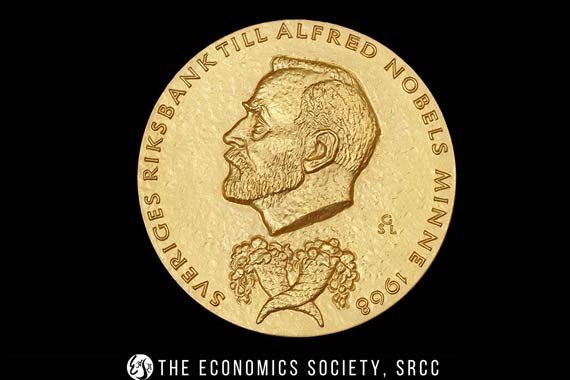
Nobel Prizes in Economics: A Comment

The Nobel Prize in Economics has always been controversial. Many people (including many economists) feel that economics is not, or not often, characterized by definitive and seminal advances in knowledge of the kind recognized by the science prizes. Even if that is true, the Nobel Prize list is a good indication of what a well-informed group judge to be the most important developments in modern economics and the most important contributors to these developments.
There are few prizes in macroeconomics—Milton Friedman (1976), James Tobin (1981), Robert Lucas (1995) and arguably Franco Modigliani (1985) and Robert Mundell (1999). Macroeconomics—the study of inflation, interest rates and aggregate employment—is a much less important part of academic work in economics than most people might suppose. But there have also just been fewer good new ideas in macroeconomic theory in the last fifty years than in other branches of economics.
About two-thirds of Nobel Prizes in Economics have gone to the United States, this despite an attempt by the organizers to lean over backwards to favour non-Americans—it is hard to argue that the average achievement of the non-Americans is as high. However, the proportion of awards in economics going to the United States is no higher than in the sciences.
Several awards—Heckman (2000), McFadden (2000), Haavelmo (1989), Klein (1980), and arguably Frisch (1969) and Tinbergen (1969)—have been made in econometrics. Econometrics is not, as many people believe, the application of mathematics to economics. Most economic theory is now developed mathematically—indeed, there is an inappropriate premium for expressing ideas in this way, and the mathematics used is often trivial. Econometrics is the application of statistical techniques to economic data-sets. The development of these methods has partly compensated for the inability of economists to engage in controlled experiments, and the sophistication of statistical techniques in econometrics now runs far ahead of its development in other subjects—such as medical statistics—where similar problems arise.
The majority of prizes have been given for microeconomic theory—the issue is the functioning of individual markets for goods and services, the concerns of my book mentioned below, where I have dealt with questions as follows: Why are some people and some countries rich, and others poor? Why did centrally planned regimes fail in economic competition with market economies? How do decentralized market economies coordinate complex products and global distribution? How do economic systems handle risks? How do they deal with inequalities of information in markets for technologically sophisticated products? How do they distribute the rewards between different members of the teams which manage complex production processes? How do markets coordinate networks? How do they stimulate knowledge and innovation? What really determines our economic behavior—how we work and what we consume? What should be the role of government in a modern economy?
There is wide agreement that the future development of macroeconomics will be from a microeconomic base, although that has now been said for many years without major practical consequence.
Around the Second World War, the work of Hicks and Samuelson established formal economic analysis based on rational choice, and this has been the dominant methodology—for Becker the only methodology—of modern economics. It proved an initially rich vein which today seems to be approaching exhaustion. At the start of the twenty-first century, it perhaps begins to be possible to see where future discoveries might lie—where the next generation of Nobel Prizes might be earned.
Behavioural economics implies more concern for observation, less for a priori assumption, and the same will be true as transaction-cost economics frees itself from the rational choice framework. But more observation does not lead to less mathematics: on the contrary, it opens the way for the more difficult analysis of complex dynamic systems to take the place of the routine application of maximization and duality which have been the professional economist’s stock-in-trade for half a century. This pincer movement of softer observation and harder mathematics is already taking hold in financial economics, and the events of the bubble and its aftermath will give strength to that. From financial economics, these methods are likely to spread to the mainstream of economics itself.
As we understand better the evolutionary and neurophysiological bases of psychology, it is inevitable that the insights obtained will change the way we think about the behavior of individuals and organisations. It is possible that in a few decades we may have the knowledge to undertake the control of behavior and events which today’s politicians and business leaders assert but do not enjoy. This is an exciting, but also frightening, future for those who study economics and business and continue to seek the truth about markets.
By John Kay
Fellow of St. John’s College, Oxford.
REFERENCE
Excerpted and adapted from Kay, John. 2003. The Truth about Markets. Allen Lane.
You may also like
Adding {{itemName}} to cart
Added {{itemName}} to cart

